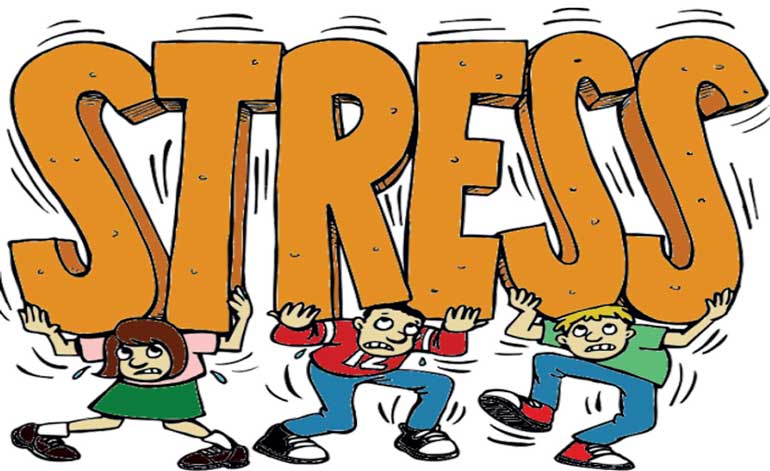Wednesday Feb 18, 2026
Wednesday Feb 18, 2026
Monday, 29 January 2018 00:00 - - {{hitsCtrl.values.hits}}
Are you experiencing stress at work? Want to learn more about what causes stress and the impact of stress on people at work? First, you should start by exploring where and how your workplace stress is coming from.
Once you understand the origin of your workplace stress, use these five suggestions to help you manage it. Effective stress management is not easy and requires time and practice. But developing stress management skills is important for your overall health and well-being.

1. Control time allocation and goals
Set realistic goals and time frames for yourself.
Setting realistic goals for your day and year helps you feel directed and in control. Goals give you a yardstick against which you can measure every time commitment. And, walking long enough is a stress producer, not a stress management tool.
Scheduling more than you can handle is a great stressor. Not only are you stressed trying to handle your commitments, you are stressed just thinking about them. If you are experiencing overload with some activities, learn to say, ‘no’. Eliminate any activities which you don’t have to do. Carefully consider any time-based commitment you make.
Use an electronic planner to schedule each goal and activity you commit to accomplishing, not just your appointments. If that report will take two hours to write, schedule the two hours just as you would a meeting. If reading and responding to email take an hour per day, schedule the hour.
2.Reconsider all meetings
Why hold meetings in the first place? An effective meeting serves an essential purpose — it is an opportunity to share information and/or to solve a critical problem. Meetings should only happen when interaction is required. Meetings can work to your advantage, or they can weaken your effectiveness at work. If much of your time is spent attending ineffective, time-wasting meetings, you are limiting your ability to accomplish important objectives at work.
The Wall Street Journal quoted a study that estimated American managers could save 80 percent of the time they currently waste in meetings if they did two things: start and end meetings on time and follow an agenda.

3.You can’t be all things to all people – Control your time
Something has to give. Make time for the most important commitments and take some time to figure out what these are. Time management is a systematic approach to the time of your life applied consistently.
The basis of time management is the ability to control events. A study was done some years ago that revealed symphony conductors live the longest of any professionals. Looking into this longevity, researchers concluded that in no other occupation do people have such complete control over existing events.
In his book, Time Power, Dr. Charles Hobbes suggests that there are five categories of events:
There are two major issues about control:
Each of us is really in control and in charge of more events than we generally like to acknowledge.
Some things are uncontrollable. Trying to control uncontrollables is a key cause of stress and unhappiness.
With the competing demands that exist for your time, you probably feel as if much of your day is not in your control. Feeling not in control is the enemy of time management. Feeling not in control is one of the major causes of stress in our daily lives, too.
4.Make time decisions based on analysis
Take a look at how you currently divide your time. Do you get the little, unimportant things completed first because they are easy and their completion makes you feel good? Or, do you focus your efforts on the things that will really make a difference for your organisation and your life? Events and activities fall into one of four categories. You need to spend the majority of your time on items that fall into the last two categories.
5.Manage procrastination
If you are like most people, you procrastinate for three reasons.
Deal with procrastination by breaking the large project into as many small, manageable, instant tasks as possible. Make a written list of every task. List the small tasks on your daily, prioritised To Do List. Reward yourself upon completion. If you do procrastinate, you’ll find that the task gets bigger and bigger and more insurmountable in your own mind.
Just start.
These stress managing tips will help you change your actions and outlook.
Best wishes as you implement these ideas to live a great life.